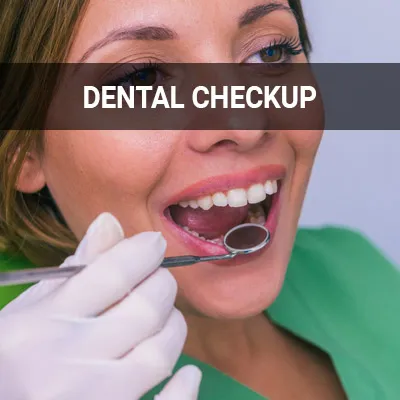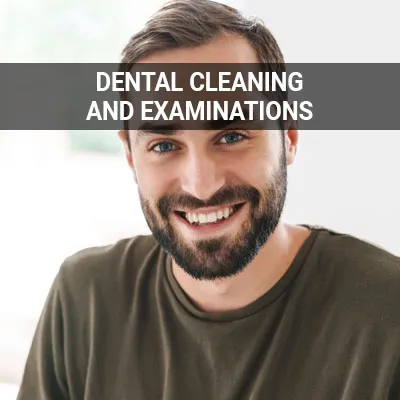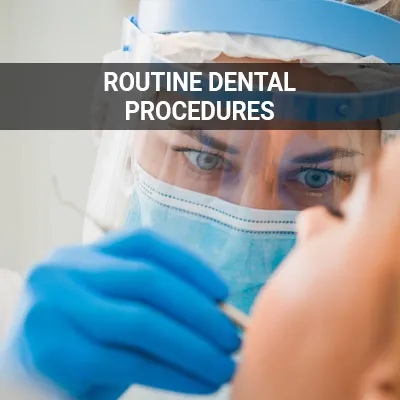Dental Anxiety La Puente, CA
Solutions to dental anxiety come in many forms. When left untreated, many dental problems only get worse. We can help empower patients with dental anxiety to take the necessary action to treat their underlying conditions.
Solutions to dental anxiety are available at Bright Dental Care in La Puente and the surrounding area. Fear should never get in the way of your health. Call us at (626) 709-4776 to learn more and schedule an appointment today.
Understanding Dental Anxiety
Dental anxiety, also known as dental phobia, is a condition in which patients have a debilitating fear of the dentist. People with dental anxiety are aware that their fear is irrational, but have little to no means of managing it. They may be so panic-stricken by the prospect of seeing the dentist that they will only go when forced by extreme pain. Other common signs of dental anxiety include:
- Escalating feelings of nervousness in a dentist’s waiting room
- Feelings of intense unease at the thought of a dentist placing objects in the mouth during treatment
- Physical reactions at the thought of visiting the dentist
- Trouble sleeping the night before a dental appointment
At times, dental anxiety may get severe enough to be considered pathological. Patients who find that their dental anxiety severely impedes their normal functioning may benefit from psychiatric treatment.
“People with dental anxiety are aware that their fear is irrational, but have little to no means of managing it.”
Causes of Dental Anxiety
Patients of all ages and backgrounds can have dental anxiety. A multitude of factors may contribute to someone's unease at the prospect of being in the dentist's chair, including but not limited to fear of anesthesia, fear of injections, fear of pain, feelings of embarrassment, and feelings of helplessness.
All of the above are valid reasons to be anxious. Still, they do not have to overtake a patient's dental experience. Patients should be open and honest with their dentist about their anxieties, as this is the first step to phobia management. At Bright Dental Care, we believe communication is key to a successful dentist-patient relationship.
“Patients should be open and honest with their dentist about their anxieties, as this is the first step to phobia management.”
Coping with Dental Anxiety
Dealing with a dismissive dentist may only make the problem worse. Therefore, the first step to managing dental anxiety is finding the right dentist. Patients should also ask office staff about any recommended coping strategies and agree on a signal to let the dentist know if they need to take a break.
Mindfulness techniques can also help. Patients may want to try breathing exercises or doing body scans while in the dentist's chair. Others may benefit from distracting themselves by doing things like wearing headphones or occupying their hands.
Additionally, patients should let the dentist know if they are particularly sensitive to pain, even with local anesthesia. There is no need for patients to feel embarrassed about asking questions or being open about their fear. This is the only way to develop a truly individualized plan to attack one's dental anxiety.
“There is no need for patients to feel embarrassed about asking questions or being open about their fear.”
Check out what others are saying about our dental services on Yelp: Dental Anxiety in La Puente, CA
Sedation & Dental Anxiety
Some patients with more severe dental anxiety may require more intensive management measures. These include:
- Relative Analgesia. Also known as “laughing gas,” relative analgesia consists of patients receiving a combination of oxygen and nitrous oxide through a mask fitted to their face. This treatment is quick to take effect and also quick to wear off. Patients remain awake but feel relaxed for the procedure.
- Anxiety Medication. Typically, anxiety medication for dental anxiety comes in the form of a pill. It may be prescribed either by a dentist or a doctor. The patient will take a single, short-acting dose about one hour before their dental appointment.
- Conscious Sedation. Conscious sedation is a form of intravenous (IV) sedation administered either by a sedation dentist or an anesthetist. Patients under conscious sedation may drift off into a light sleep, making this known as “twilight sedation.”
- General Anesthesia. General anesthesia is the most intensive form of sedation, administered through a combination of IV medication and inhaled gases. Patients are put fully to sleep and will require pre- and post-operative visits.
Not all forms of sedation are appropriate for everyone or every dental procedure. Our qualified team works closely with our patients to take the proper measures to provide the most comfortable experience possible.
“Some patients with more severe dental anxiety may require more intensive management measures.”
Questions Answered on This Page
Q. What causes dental anxiety?
Q. How can I cope with dental anxiety?
Q. Can I be sedated for my dental anxiety?
Q. How can I ease my child's dental anxiety?
People Also Ask
Q. What happens during a dental check-up?
Q. How can someone know what type of dental provider they need?
Q. What should I look for in a dental provider?
Q. What other resources can I use to find a dentist?
Q. What factors should people consider when choosing a dental insurance plan?
Children & Dental Anxiety
It is not uncommon for parents to experience dental anxiety on their child's behalf. Parents should maintain a calm exterior as children will pick up on any anxiety displayed by their parents. Parents should refrain from telling their children that something will hurt or be painful, nor should they promise a reward for going to the dentist. Doing so will only cause children to anticipate something unpleasant and act accordingly. While parents should tell their children about any upcoming dental appointments, they should not overload their child with too much detail about what to expect. Dentists have received the training to give simple, non-threatening answers. Parents should prioritize stressing the importance of dental hygiene to their children instead.
“Parents should maintain a calm exterior … as children will pick up on any anxiety displayed by their parents.”
Frequently Asked Questions
Q. What can a dentist do to help my child's dental anxiety?
A. Dental anxiety among children is common, so many dentists anticipate having to use calming techniques. These include distraction, non-verbal communication, simple instructions, positive reinforcement, voice control, and in some cases, sedation.
Q. How common is dental anxiety?
A. According to WebMD, between 9% and 20% of Americans avoid going to the dentist due to dental anxiety. People of all ages and backgrounds can suffer dental anxiety.
Q. Are there any other words for dental anxiety?
A. The term "dental anxiety" is most commonly interchanged with "dental phobia." However, other synonymous terms include dentophobia, dental fear, fear of dentists, and odontophobia. These words all refer to the same phenomenon.
Q. Do I really need to go to the dentist if I have dental anxiety?
A. Putting off necessary dental treatments can be detrimental to your overall health. Patients who refrain from going to the dentist due to dental anxiety are more likely to develop gum disease and lose teeth. These, in turn, may lead to a decrease in self-esteem and negatively affect one's overall quality of life.
Q. Will my dental anxiety get better over time?
A. Continued exposure and positive experiences with the dentist should lessen your dental anxiety over time. Depending on the severity of your condition, you may also benefit from seeking psychiatric help for your phobia at another facility along with the dental treatment tailored to your needs.
Dental Terminology
Helpful Related Links
- American Dental Association (ADA). Glossary of Dental Clinical Terms. 2023
- American Academy of Cosmetic Dentistry® (AACD). Home Page. 2023
- WebMD. WebMD’s Oral Care Guide. 2023
About our business, license, and website security
- Bright Dental Care was established in 2022.
- We accept the following payment methods: American Express, Cash, Discover, MasterCard, and Visa
- We serve patients from the following counties: Los Angeles County
- We serve patients from the following cities: La Puente, West Covina, El Monte, Whittier, La Habra, Pomona, and Covina
- CA (License #103981). View License Information and Specifics
- National Provider Identifier Database (1114565264). View NPI Registry Information
- Norton Safe Web. View Details
- Trend Micro Site Safety Center. View Details
Back to top of Dental Anxiety











